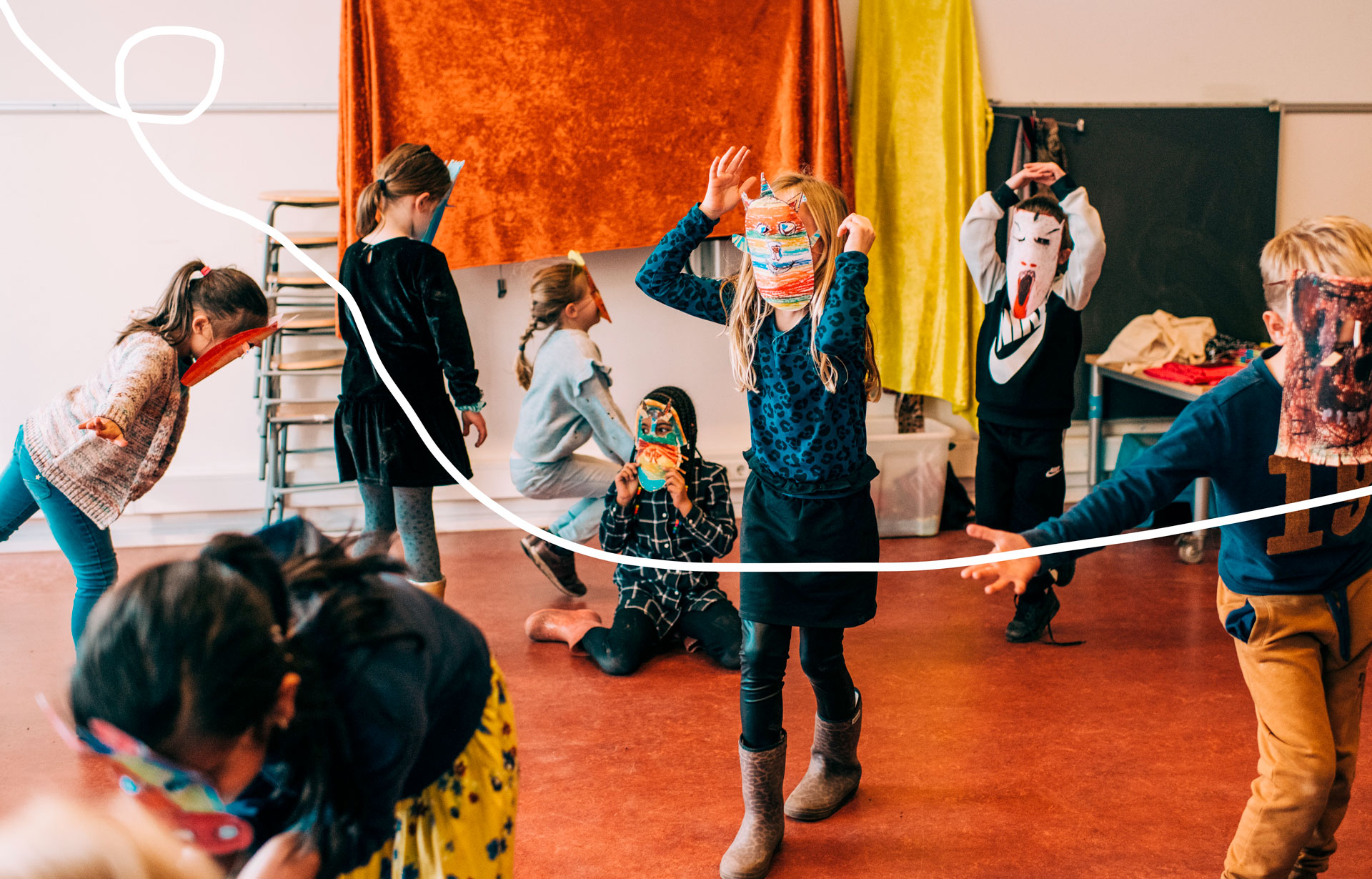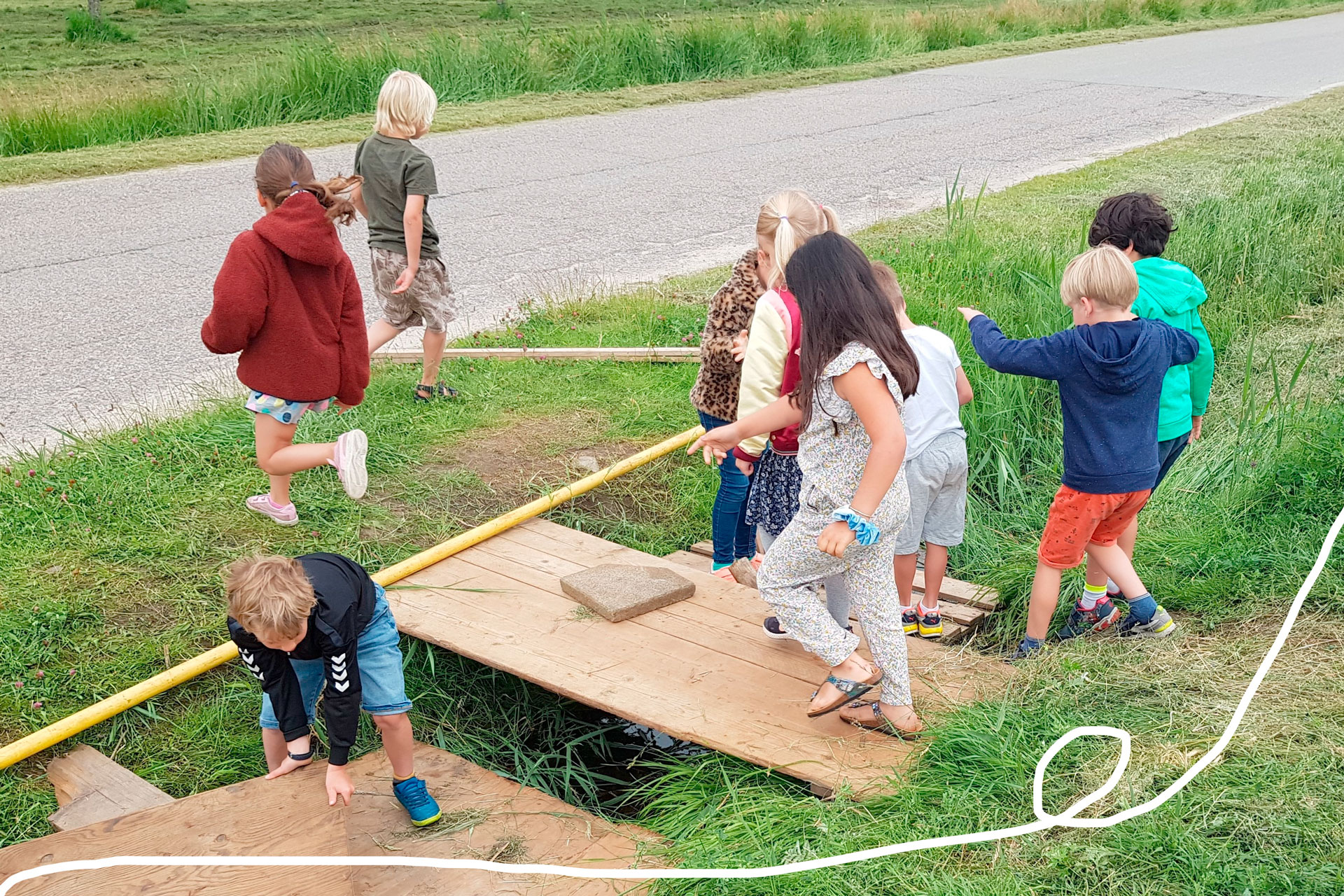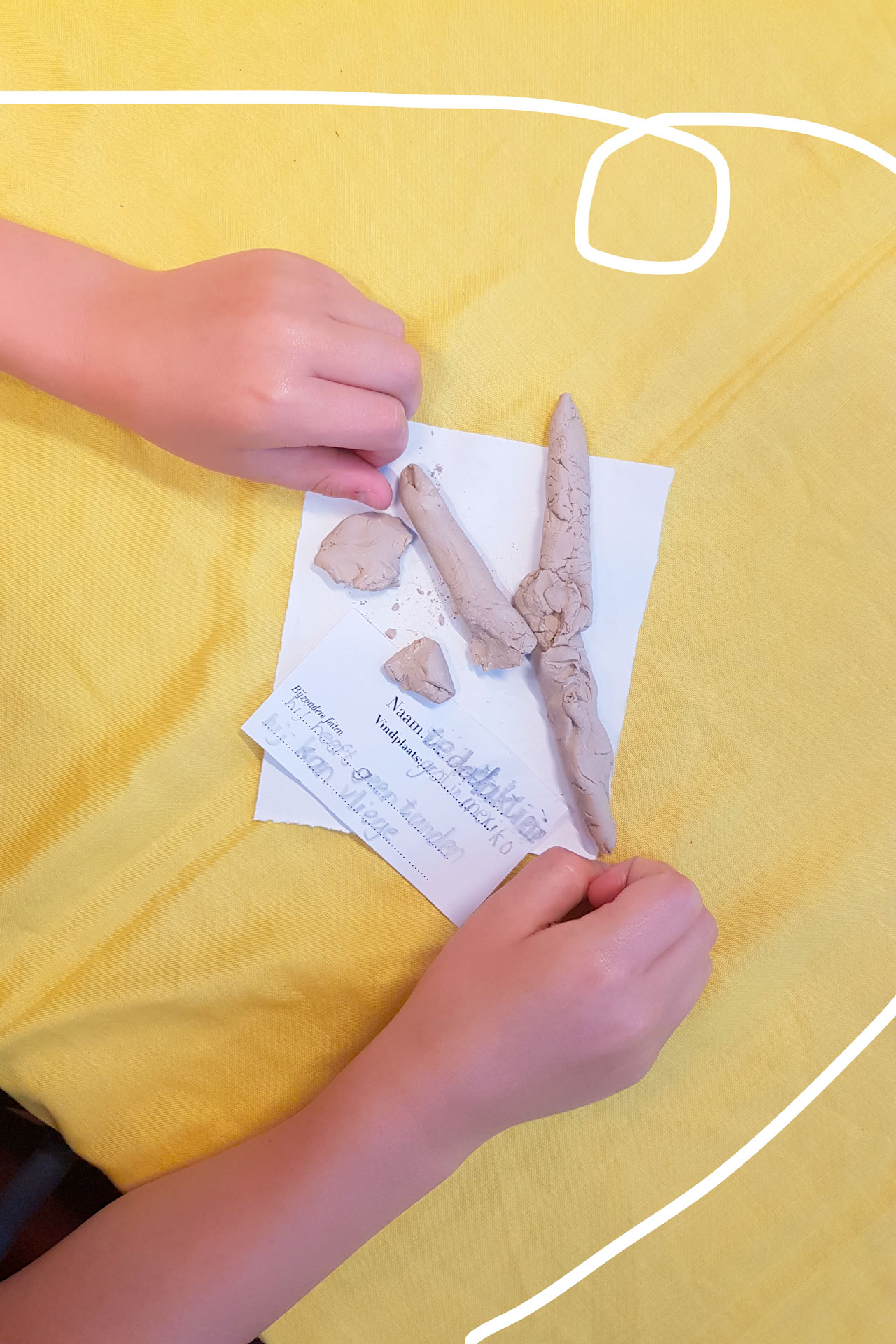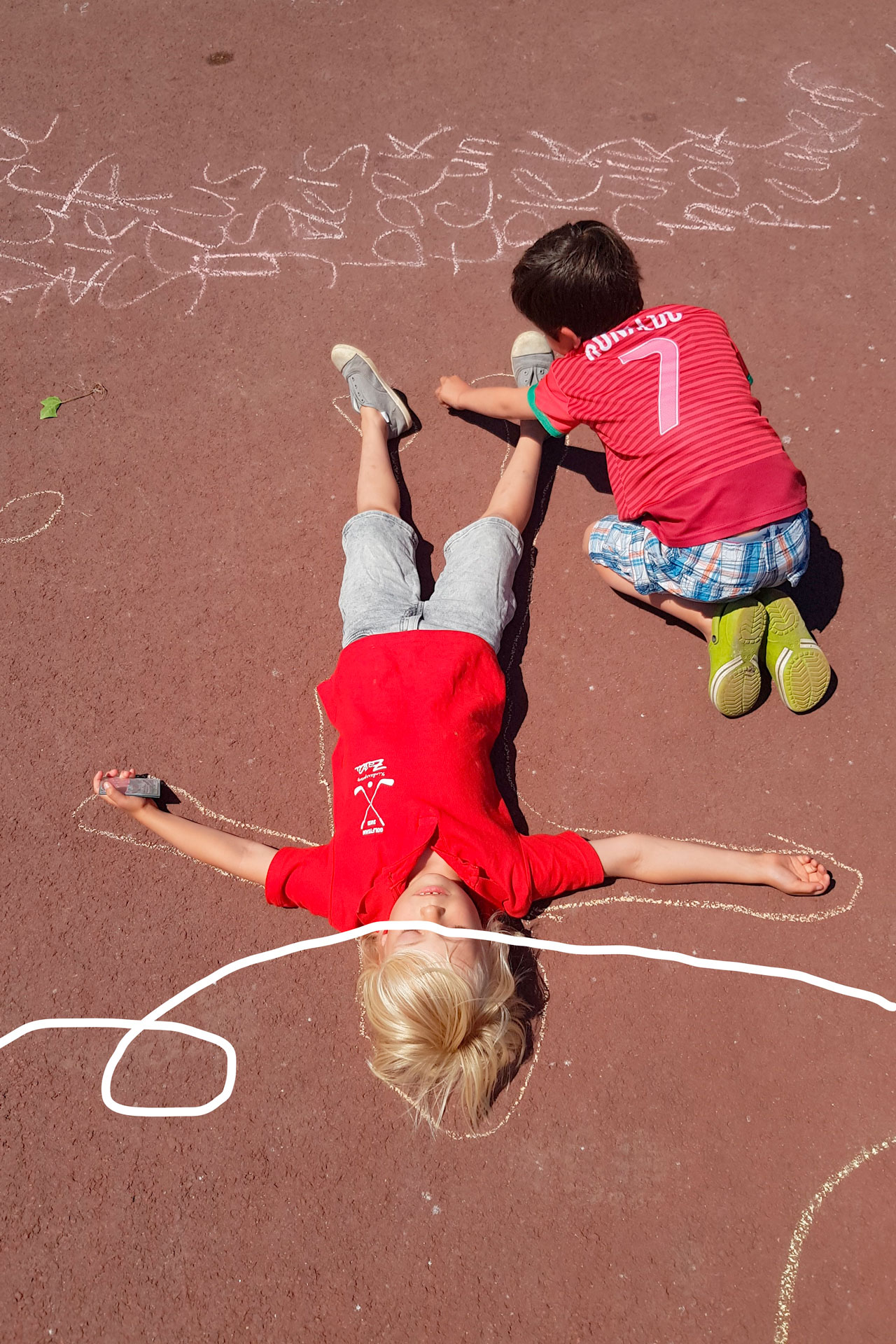In this first file, I introduce you to the main subjects and questions of my research. We listen to an excerpt of a conversation with the children in which I ask them if they experience the project more like learning or like playing. My colleague, Rosanne and I discuss the position of play in education and I introduce the concept of play as also-learning. At the end, you are invited to join a small exercise to explore how play functions as also-learning.
For more about play as also-learning, please see pages 15–18 of It’s More Like Playing.

Children playing with masks at Park16hoven primary school. Photo: Gaby Jongenelen Photography

Children playing freely outside at Park16hoven primary school. Photo: Marjolijn Gunst
In this file, we talk about the complexities of play in the educational context of a primary school curriculum. Seeing the children playing freely outside with risky material and dealing with social and physical complexities inspired us to bring elements of risks into our program. We experienced how the elements of risk could encourage children to play and learn in their zone of proximal development. Although, as the title suggests, this wasn’t always easy.
For more on the complexities of play, see pages 20–25 of It’s More Like Playing.
In this file, you hear the children presenting their self-built spaceships while we have a conversation with them as astronauts floating through the galaxy. This is an example of how we used an imagined reality to contextualize the themes, questions and exercises that were part of the program. We reflect on the meaning of an imagined reality when organizing processes of play as also-learning. We explore the extent to which the children experienced agency while constructing such a reality and talk about our role as educators during these processes.
For more about the imaginative reality as a tool for processes of play as also-learning, please see pages 32 and 41 of It’s More Like Playing.

The children created their self-invented archaeological finds during our program about the (human) body at Park16hoven primary school. Photo: Marjolijn Gunst

Children drawing a picture of the digestive system on their playground during our program about the human body at Park16hoven primary school. Photo: Marjolijn Gunst
In the final file, we reflect on the project as a whole, while asking: What did we change in our pedagogical approach to make play work? Why did we create a program with different disciplines, and was it really interdisciplinary? In what ways is this different from the general curriculum? The file includes an excerpt from the children giving us feedback on the project. We conclude with the invitation to do a small exercise to visualize how you could bring (more) play as also-learning into your own practice in arts/education.
For more about the conclusion of our research and tips and tools to bring a pedagogy of play in to practice, please see pages 37, 45 and 46 of It’s More Like Playing.